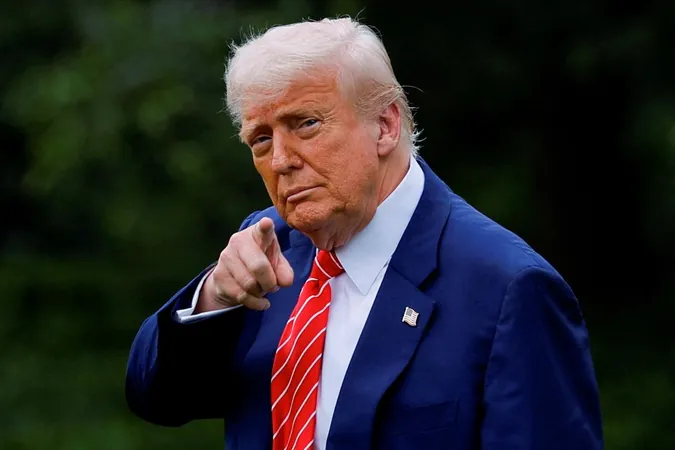
Trump's Tariff Blitz: Targeting Nations Big and Small in a Global Trade War
2025-07-09
Author: Ming
In a bold move on July 9, President Donald Trump escalated his trade war by adding more countries to his ever-growing tariff hit list, anticipating double-digit tariff rates for nations that fail to reach favorable trade agreements with the United States.
On social media, Trump shared standardized form letters warning countries like the Philippines, Sri Lanka, and Iraq that they need to brace for steep tariffs. These letters mirrored ones he issued just days prior, targeting an additional 14 nations.
Moreover, Trump did not stop there. He threatened to impose a staggering 50% tariff on Brazilian products, citing a 'witch hunt' against former President Jair Bolsonaro, who is currently under trial for attempting a coup.
The newly threatened nations join a growing roster that will be hit with extra tariffs starting August 1, including economic heavyweights like Japan and South Korea. This strategy indicates Trump's commitment to a sweeping global tariff approach he unveiled in early April, aimed at punishing countries for trade practices he considers unfair.
This latest round of threats seeks to replace the extensive tariffs introduced in April against around 60 countries that export more to the U.S. than they import—a tactic Trump believes is essential for addressing America’s trade deficits.
With countries racing to secure their own trade agreements, including key partners like the European Union and India, the White House acknowledged the impracticality of negotiating with all these nations simultaneously. Trump’s top trade adviser, Peter Navarro, made a bold claim earlier in April about signing 90 trade deals in just 90 days.
At a recent meeting with African leaders, Trump emphasized the benefits he believes tariffs will bring, boasting, "We’ve taken in hundreds of billions of dollars in tariffs, and we haven’t even started yet.” He portrayed these levies as a critical step in safeguarding the U.S. economy.
However, Trump's focus on bilateral trade deficits as a barometer for trade relationships has drawn criticism from numerous economists, who warn that this narrow perspective could have detrimental impacts on both American and global markets.





 Brasil (PT)
Brasil (PT)
 Canada (EN)
Canada (EN)
 Chile (ES)
Chile (ES)
 Česko (CS)
Česko (CS)
 대한민국 (KO)
대한민국 (KO)
 España (ES)
España (ES)
 France (FR)
France (FR)
 Hong Kong (EN)
Hong Kong (EN)
 Italia (IT)
Italia (IT)
 日本 (JA)
日本 (JA)
 Magyarország (HU)
Magyarország (HU)
 Norge (NO)
Norge (NO)
 Polska (PL)
Polska (PL)
 Schweiz (DE)
Schweiz (DE)
 Singapore (EN)
Singapore (EN)
 Sverige (SV)
Sverige (SV)
 Suomi (FI)
Suomi (FI)
 Türkiye (TR)
Türkiye (TR)
 الإمارات العربية المتحدة (AR)
الإمارات العربية المتحدة (AR)